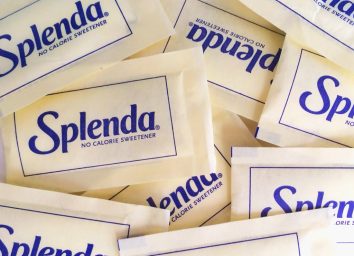5 Myths About Alternative Sweeteners, According to a Registered Dietitian
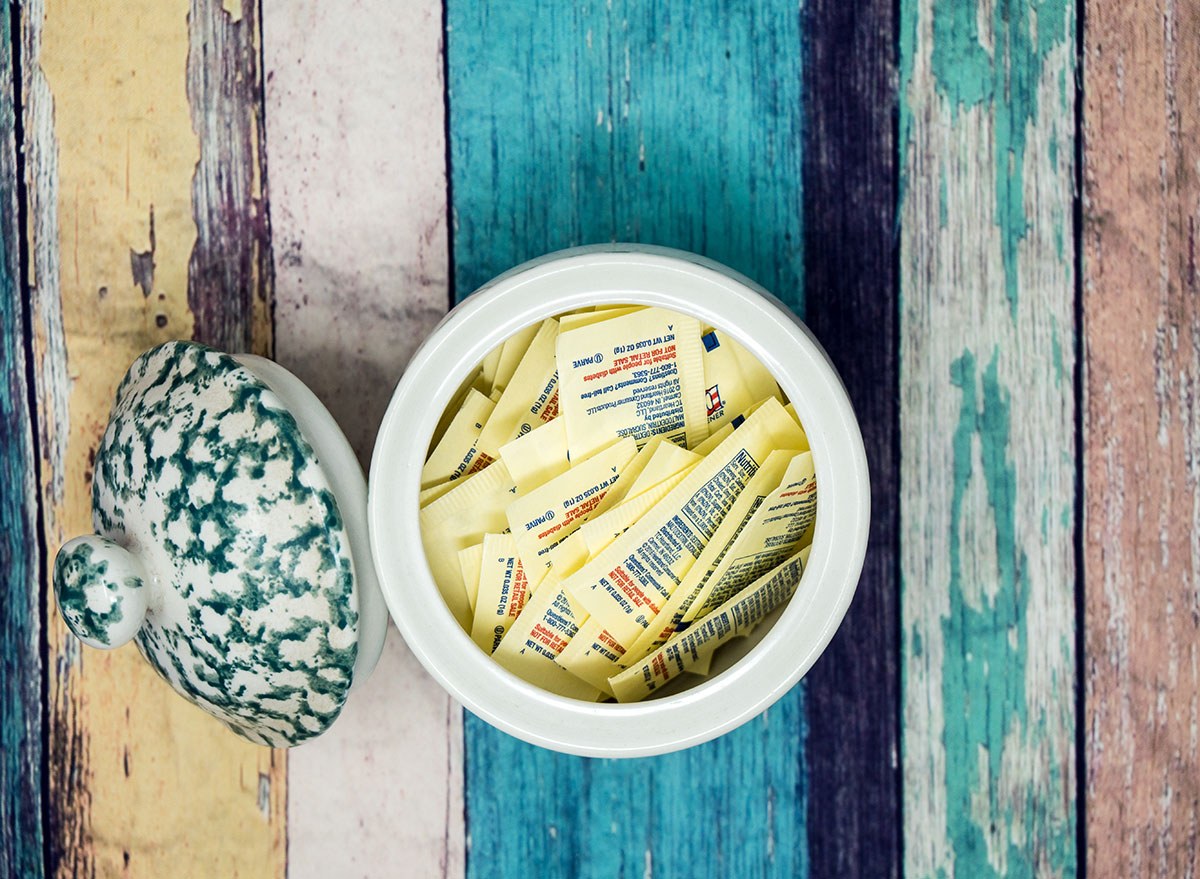
There's a lot of skepticism surrounding alternative sweeteners after several studies showed that sugar substitutes may cause a slew of health issues. But health experts say they're safe to use in moderation—and even helpful for those who need to regulate their blood sugar levels.
Currently, eight alternative sweeteners are approved by the FDA, the most common of which include sucralose, saccharin, and aspartame. Alternative and artificial sweeteners are both terms used to describe sugar substitutes, according to Keri Gans, MS, RD, CDN, and Splenda nutrition consultant. These types of sweeteners are often low in calories or don't contain any calories at all, whereas traditional sweeteners like honey and table sugar are caloric.
As Toby Amidor MS, RD, CDN, FAND, the award-winning nutrition expert and author of "The Best 3-Ingredient Cookbook," previously told Eat This, Not That! that alternative and artificial sweeteners can be between 200 and 700 times sweeter than sugar. That means you really only need to use a small amount of sugar substitute to achieve that sweet taste. Plus, they may be a healthier alternative to real sugar—especially if you crave sweet on a regular basis. (Related: The 7 Healthiest Foods to Eat Right Now).
"Added sugars, which can be found in things like sweet teas and flavored yogurts, are a form of carbohydrate that contributes empty calories and can cause blood sugar levels to rise," Gans says.
When a food or beverage is said to have "empty calories," that means it doesn't have any nutritional value. As a result, these foods don't provide the body with any health benefits. The calories are still converted to glucose in the body, which then supplies energy to cells. But too much glucose can cause blood sugar levels to rise, which can lead to a variety of health issues.
"The body does not recognize sucralose as sugar or carbohydrate, for example, so the small amount of alternative sweetener that is absorbed is not broken down for energy in the body as table sugar does," Gans says.
Below, Gans debunks five common misconceptions about sugar substitutes.
Alternative sweeteners cause…
Weight Gain
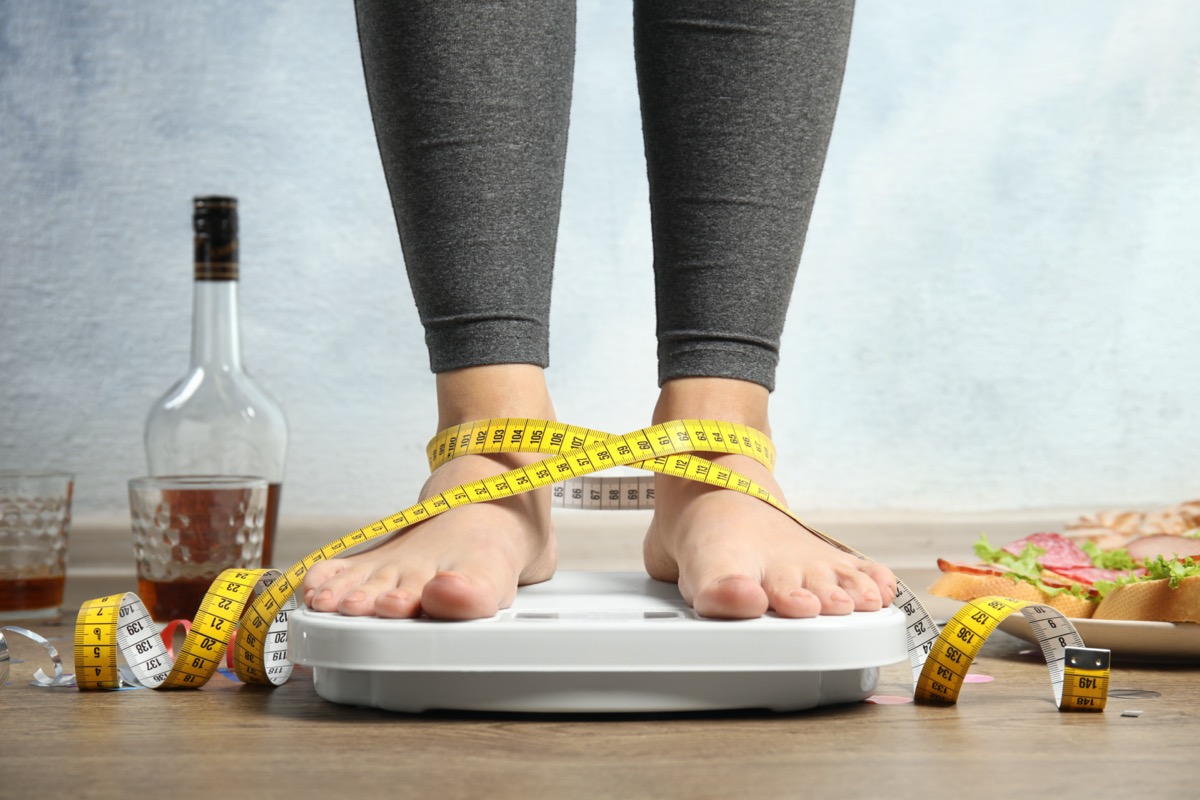
Recent studies indicate that food items and beverages sweetened with alternative sweeteners may cause sugar cravings to decrease, according to Gans.
"In turn, that can help people manage their weight, reduce intake of calories from added sugars, and manage blood sugar levels," she says.
Cancer
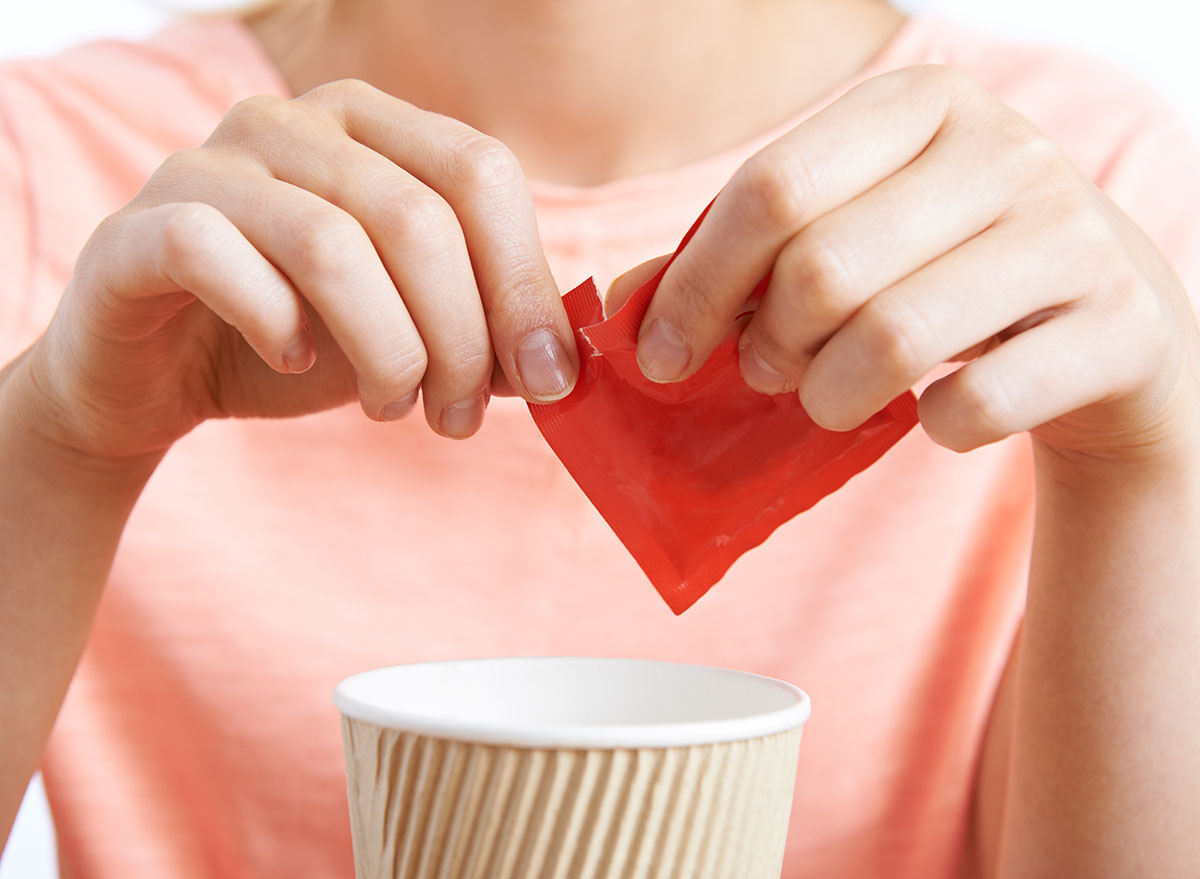
"Collective scientific evidence strongly supports that sucralose is safe for everyone and does not cause cancer," Gans says. "Also, in 2019, the International Agency for Research on Cancer (IARC) shared that safety tests on sucralose showed no harm when looking at consumption levels well above what most people would actually eat or drink."
While research has pointed to a possible link between aspartame and cancer, both the U.S. Food and Drug Administration (FDA) and European Food Safety Authority (EFSA) concluded that studies haven't established a clear connection. Again, you only need to add a very small amount of artificial sweetener in products to achieve that sweet flavor.
The EFSA's acceptable daily intake (ADI) of aspartame is 40 milligrams/kilograms/day, which means a person weighing 60 kilograms (132 pounds) would have to drink 12 cans of diet soda each day to hit the maximum limit.
Diabetes
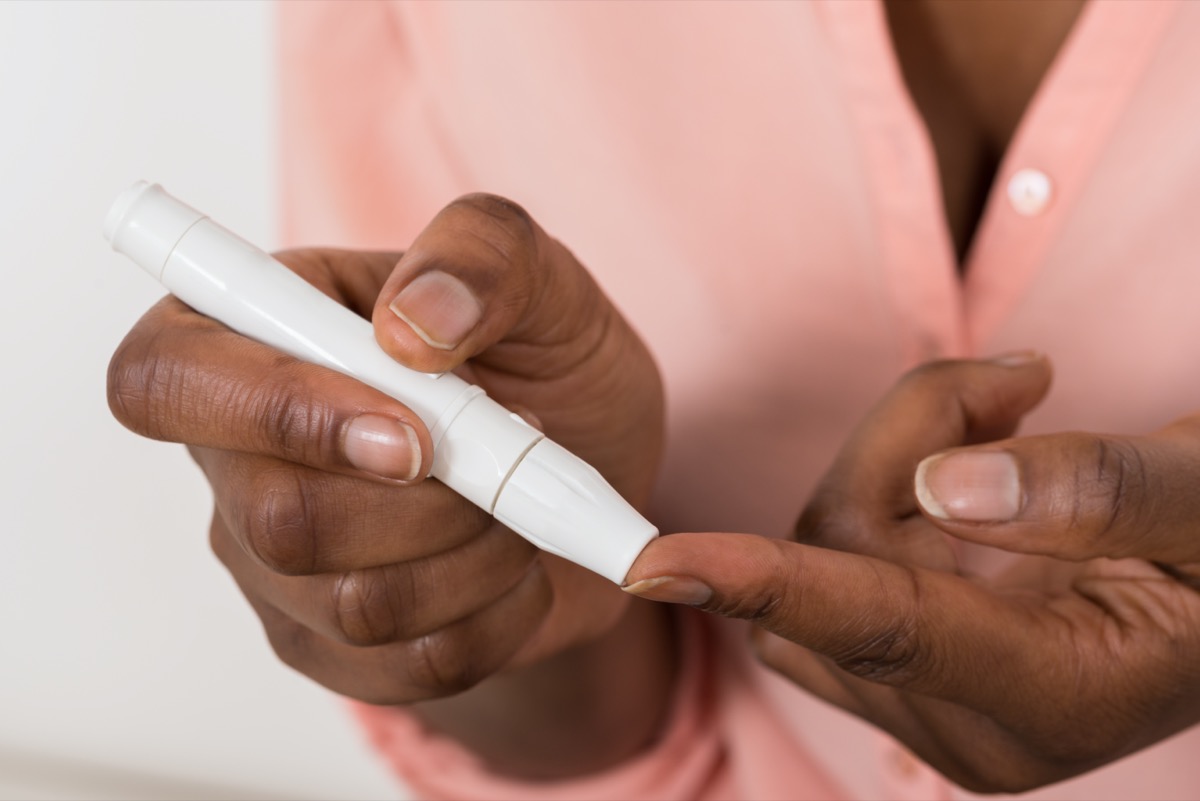
For individuals who have prediabetes or are at risk of developing type 2 diabetes, non-nutritive sweeteners (meaning ones that are low-calorie or contain no calories) may be the best way to safely satisfy that sweet fix without causing blood sugar levels to spike.
And these sweeteners are great alternatives to sugar for some, according to the American Diabetes Association. "The potential decrease in calories and carbs could lead to better long-term blood sugar, weight and/or cardiometabolic health," it says.
Elevated Blood Sugar Levels

People with type 2 diabetes must monitor how much sugar they take in each day to keep their blood glucose levels in check. Sugar substitutes appear to have no effect on blood sugar levels—even when consumed in large quantities.
A recent study conducted by The Ohio State University Wexner Medical Center and The Ohio State University College of Medicine found that saccharin, which is found in Sweet 'N Low, didn't have any impact on blood glucose (sugar) levels or cause any changes in gut microbiota. (It's important to note that participants in this study consumed double the amount of the average intake of saccharin.)
Changes in Gut Health

The effects that sugar substitutes had on gut microbiota were a bit inconclusive, according to the results of a 2019 study published in the journal Advances in Nutrition.
"The effects of sweeteners on gut microbiota have not been completely elucidated," the authors of the study wrote, noting that saccharin and sucralose were associated with a shift in gut microbiota in both animals and humans. "However, more human studies are needed to clarify these preliminary observations," they added.
A shift in gut microbiota is more likely attributable to changes in food choices more so than the use of alternative sweeteners, Gans points out.
In short, the best answer may be to limit your intake of alternative sweeteners—just as you would sugar.
For more tips on how to cut back on the sweet stuff, be sure to read 10 Easy Ways to Eat Less Sugar From a Celebrity Nutritionist.
